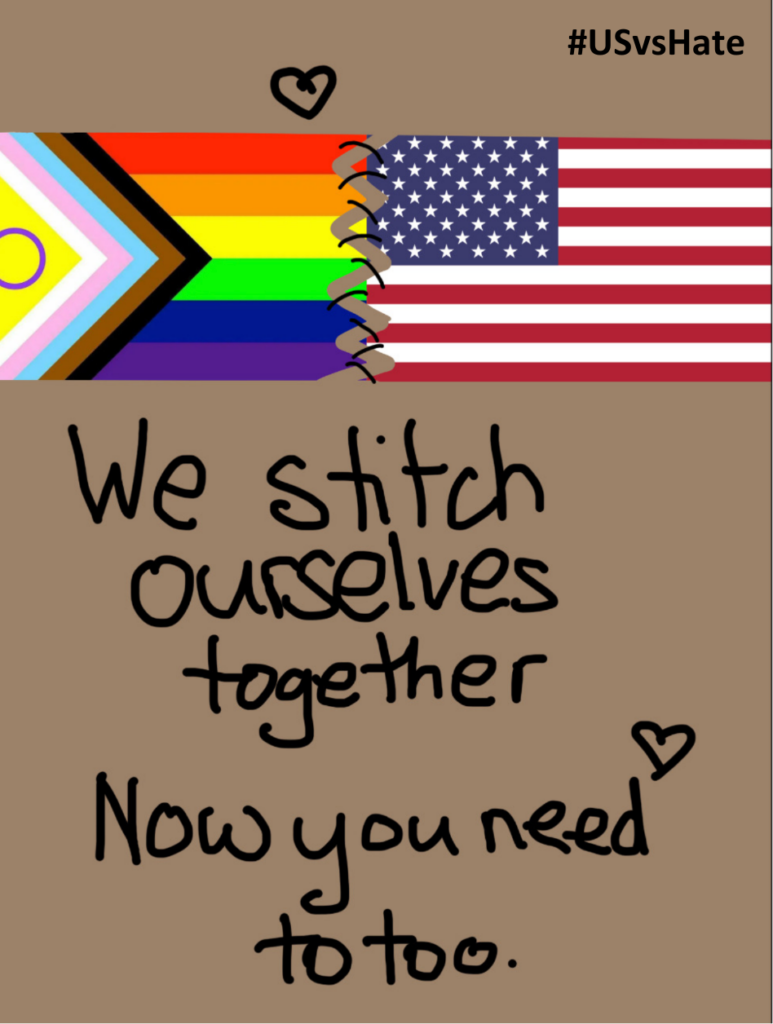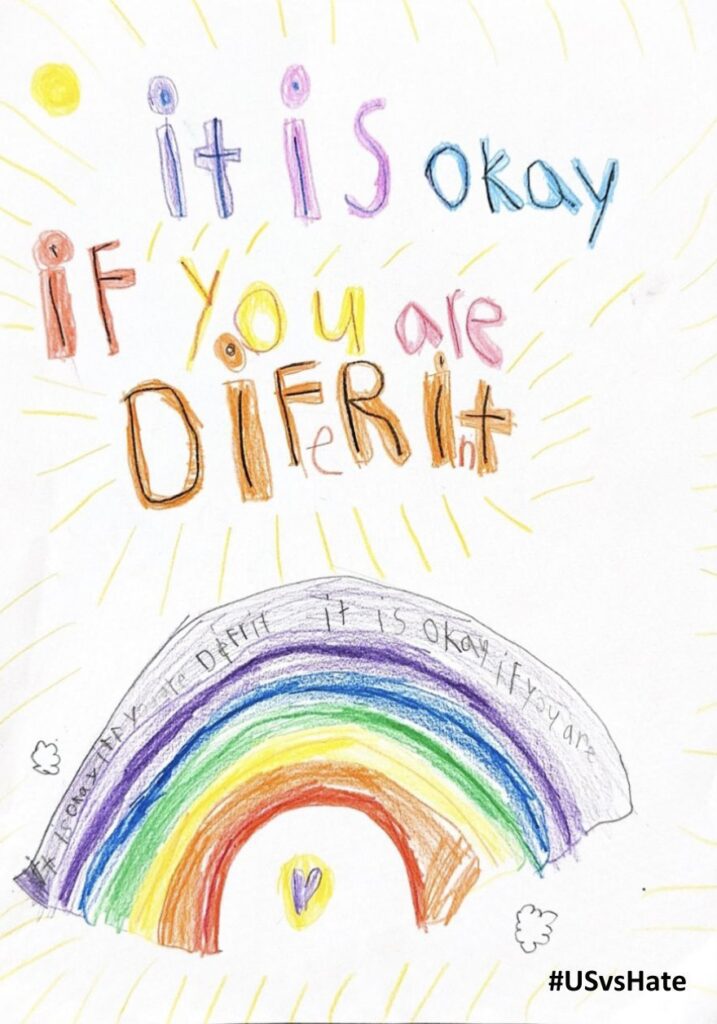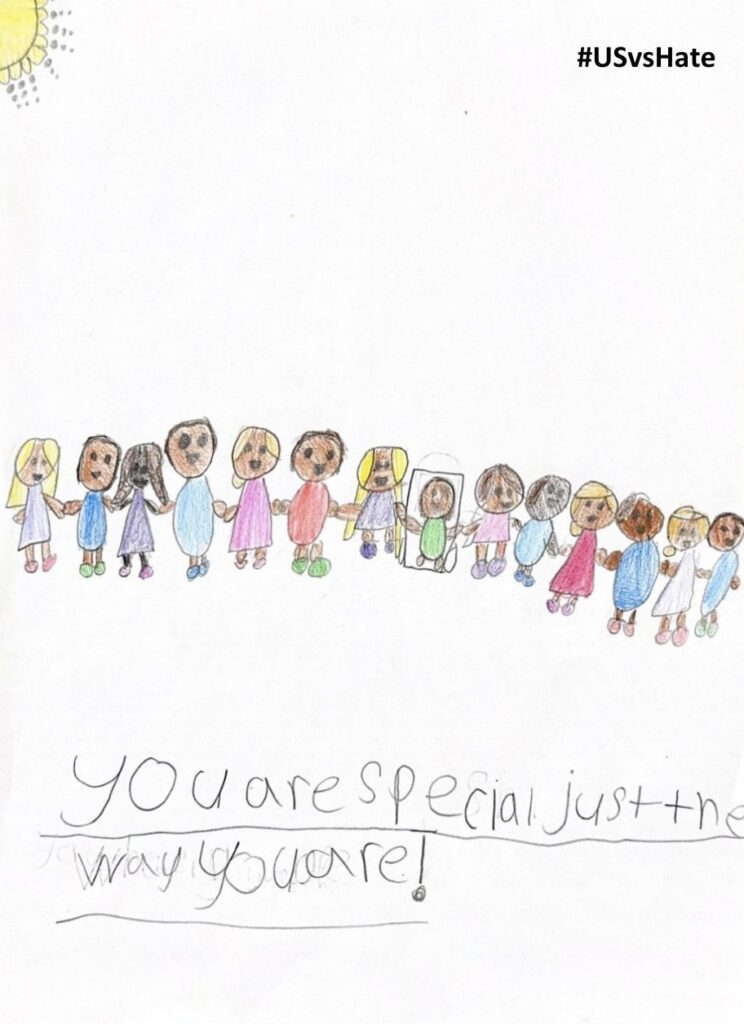#LetUsLearn Special Call
We are super excited about amplifying these student voices in our Special Call! Recently, the nation has seen a lot of arguing over what should be taught in U.S. schools. PEN America has now documented over 300 total “educational gag order” bills in 45 states filed by politicians since January 2021 Most recently, 29 recent “gag order” laws across the country now officially limit school learning and talk about history, race, gender and sexuality, and diversity. 40+ anti-LGBTQ bills to limit sexual orientation- and gender-related learning and youth support have been introduced since 2022. PEN America has also tracked nearly 6,000 book ban cases between July 2021 and June 2023 in at least 41 states, affecting millions of students. These networked “ban” efforts often target lists of books that acknowledge racism, with protagonists of color, or with LGBTQ characters.
We haven’t heard nearly enough from youth themselves!
So, we asked youth three questions in our Special Call (https://usvshate.org/2022-special-call/):
- Youth will soon be in charge of making our country work for everyone. To prepare, what facts should youth learn in school about race, racism, gender, and injustice in our society, historically and today?
- What sort of teaching and activities like this have you benefited from, in the past?
- What can we learn and do in our schools or communities for all of us to feel welcome, included, seen, respected, and valued?
The messages below were chosen by youth, educators, and the community as Fall 2023 winners.
Winners
Vy, Grade 12, California
Vy writes: “I believe that we should be able to learn about the events, ideas, and works that have shaped our world. Censoring works that some view as controversial prevents students from understanding multiple perspectives and silences our voices.”
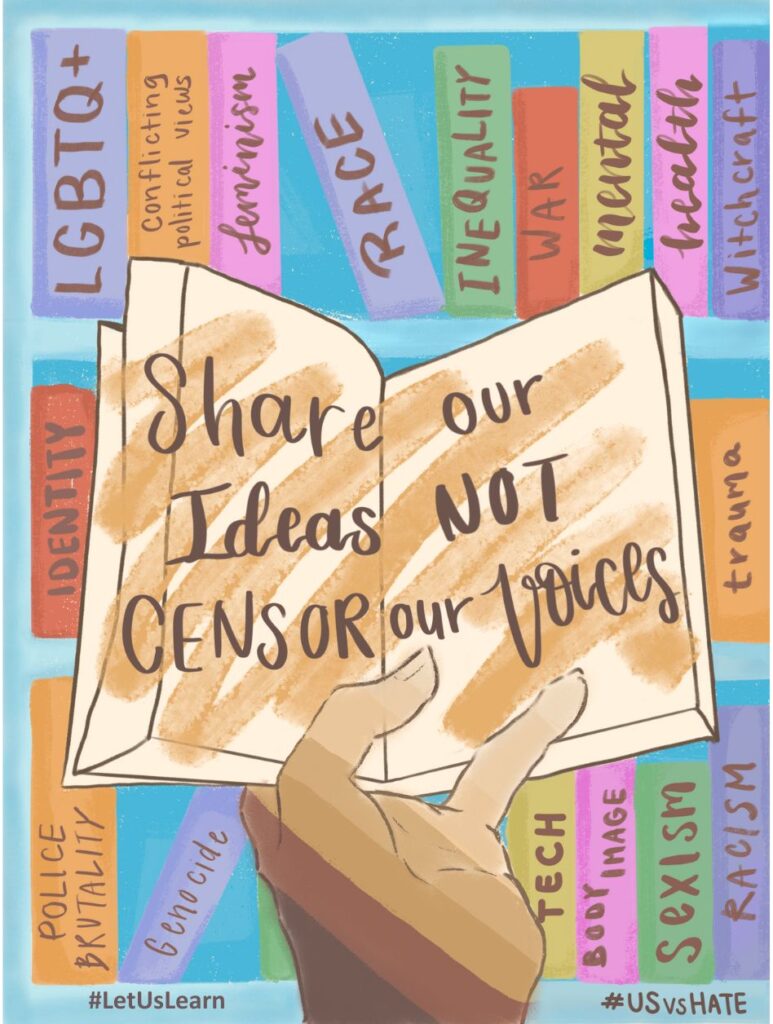
Angelina, Grade 12, California
Angelina writes: “Books are the key to understanding the world and present information in an interesting way. My perspective has changed due to books that are seen as “controversial” and I believe that they are important in helping us learn from the mistakes of the past.”
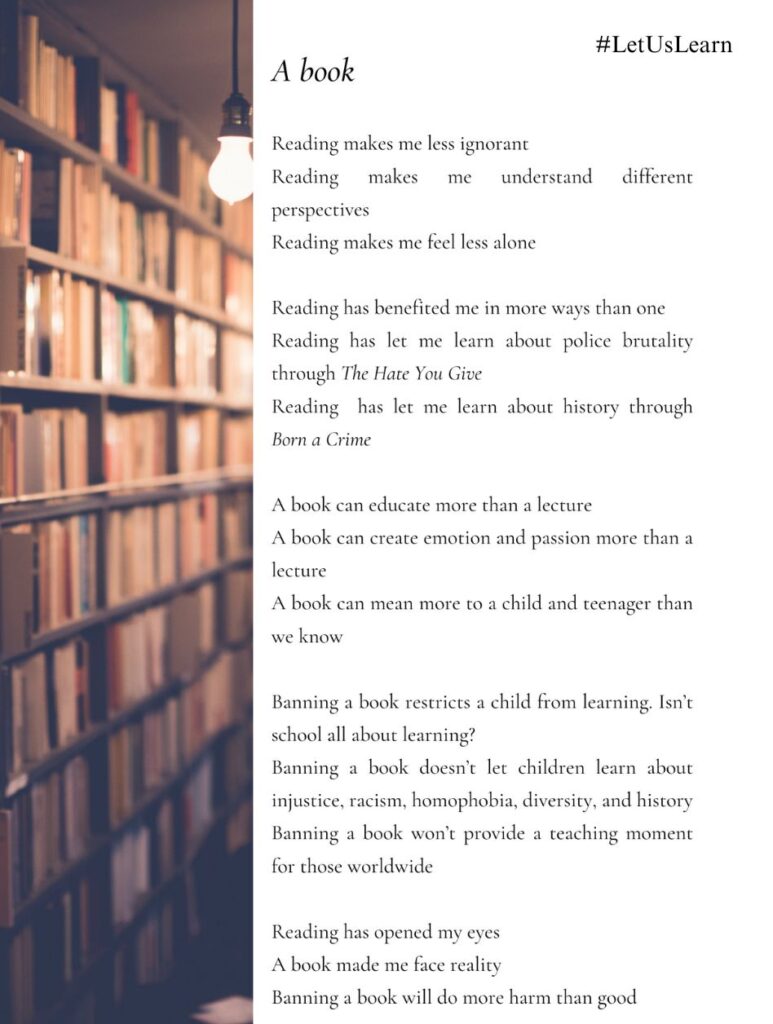
Finalists
Dana, Grade 11, New York
Dana writes: “My intentions with this message were to motivate students to do more research on American history and educate themselves on whatever isn’t taught in school. My school has never made any movements to remove or censor any part of American history but doesn’t go into depth about America’s role in darker moments of that history. More students should learn about all parts of American history, not just the parts that show America in a good light.”
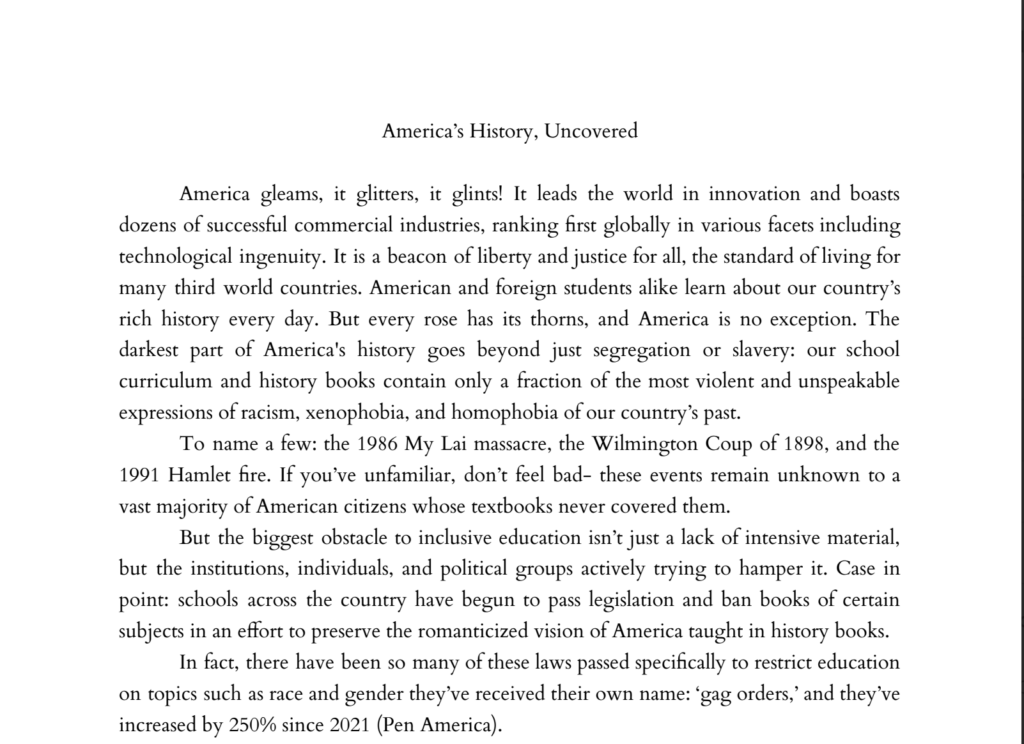
Conversation Starter
Conversation starters are #USvsHate messages that we think can spark dialogue in school communities, in addition to messages that largely inspire us. Here’s our Special Call 2023 #LetUsLearn Conversation Starter! To spark conversation, we asked voters, “These two youth mention a host of ideas, theorists, and thinkers they have been able to engage in their high school classes, and the deep learning they value. What’s your take on the need to learn history thoroughly and inclusively, while engaging many perspectives in schools?”
Anonymous, 11th Grade, California
Classic Contest
The following are the fabulous winners and finalists for the Fall 2023 classic #USvsHate contest! We asked voters: Which do you most want amplified in schools and publicly?
In #USvsHate, we define “hate” as any time people denigrate, disrespect or harm an individual or group as if their identity makes them an inferior or less valuable type of person. By amplifying “anti-hate” youth voices in schools and publicly, we seek to empower students to build schools and a society where all belong, feel included, and get supported.
The messages below were chosen by youth, educators, and the community as Fall 2023 winners.
Winners
Deul, Grade 11, California
Deul writes: “As a Korean-American born in America, only to return to Korea almost 15 years later, identity became a constant struggle for me. Oftentimes, I felt caught in the middle of a tug-of-war game, with people insisting that I was too American at times and too Korean at other times. I wrote this poem to illustrate how labels, especially those related to one’s race, can carry the weight of the world. People often make generalizations or even exclude others based on these racial labels. However, together, we can look beyond these words that harshly impose limits on our character and identity, aiming to see people for more than just a hyphen or a single word.”
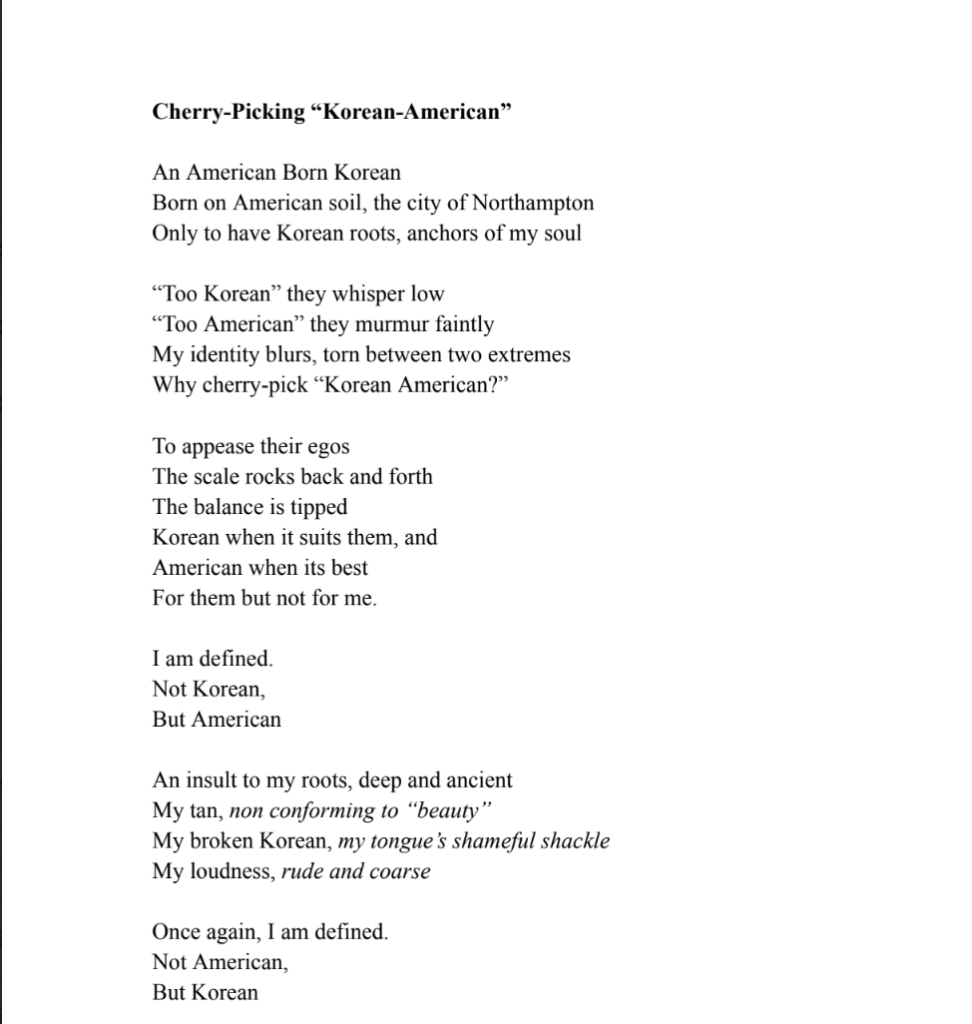
Anonymous, Grade 12, California
Anonymous writes: “The only reason I chose the LGBTQIA one is because I am LGBTQIA. I mean idk my message is just to celebrate who you really are.”
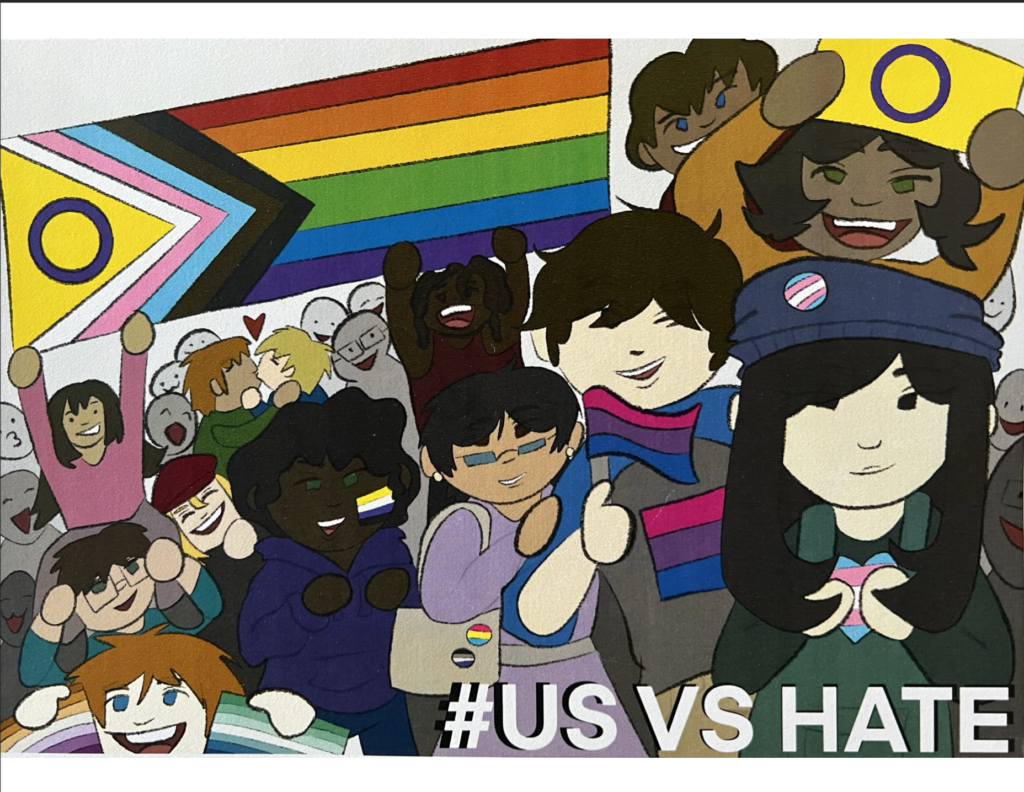
Finalists
Anonymous, Grade 1, California / Anonymous, Grade 1, California
Their teacher explains: “After reading the picture books Fitting In by Hanuka Aoki and John Olson and The Artivist by Nikkolas Smith, first graders created posters with messages of inclusion for other students at our school.”
Conversation Starters
Aubrey, Grade 10, California
Aubrey writes: “As a resident of Los Angeles, I have seen firsthand how the homeless population has increased immensely. This breaks my heart, especially the subjective stereotype placed on the homeless – “mentally crazy,” “disgusting humans,” or even “psychotic people.” In reality, they are mothers, sons, veterans and all of them are human beings. A main reason for homelessness is the lack of mental and medical support that many of them need. I created an art piece to capture the homeless on Skid Row in Downtown Los Angeles, depicting their faces and their humanity.”
We asked: This moving message puts stereotypes about unhoused people (in red letters) versus realistic descriptions of who people actually are (in black letters). In your community, are there people unknown and treated as less valuable? What can be done to improve that treatment of fellow community members?
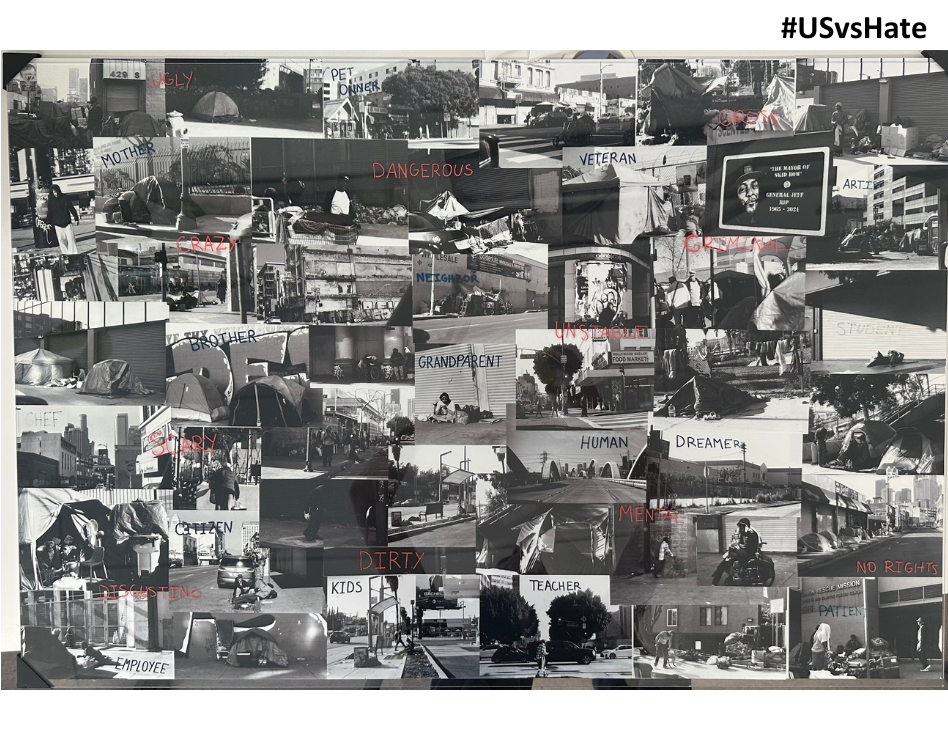
Anonymous, Grade 1, California
The teacher writes: “After reading the picture books Fitting In by Hanuka Aoki and John Olson and The Artivist by Nikkolas Smith, first graders created posters with messages of inclusion for other students at our school.”
We asked: What other ingredients would you add to this student’s “recipe of peace”?
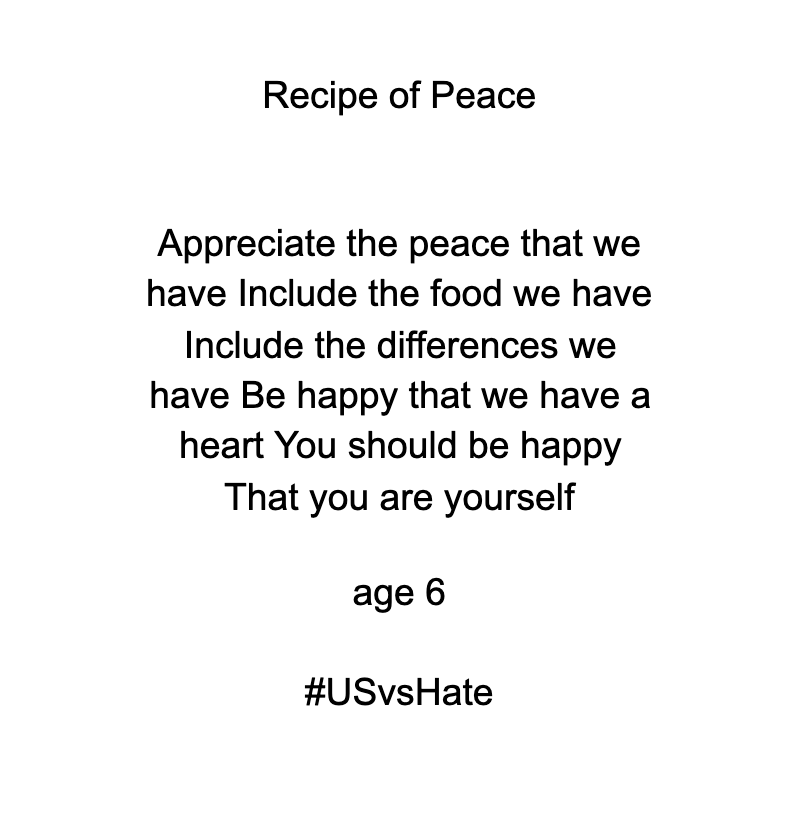
Anonymous, Grade 10, California
The teacher writes: “This year our classes focused on Words That Hurt. We discussed the Pyramid of Hate and the need to speak up. Students made a script for themselves to stand up against bullying and hateful language; each student committed to ‘Words We Will Say’ as interrupters, educators, echoers, or questioners.”
We asked: This message focuses on cyberbullying and online cruelty, something a lot of youth deal with today. What’s one thing you think youth or adults can do about this form of hate, including “to stand up against bullying and hateful language”?
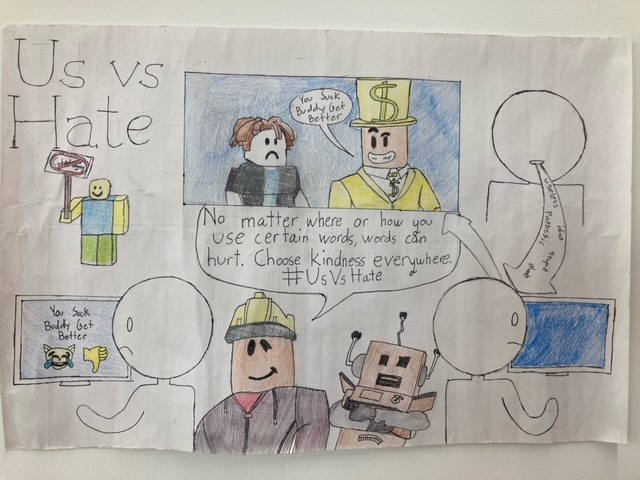
Quinn, Grade 8, Connecticut
Quinn writes: “More students should learn about how their actions affect other people. Whether its on the bus, in school, or outside of school everyone has feelings. Everyone should be able to feel included. Everyone should feel like they are supported.”
We asked: This message above could be read as a call to insist on belonging, in a nation that doesn’t always support this. What’s your take on its demand?
